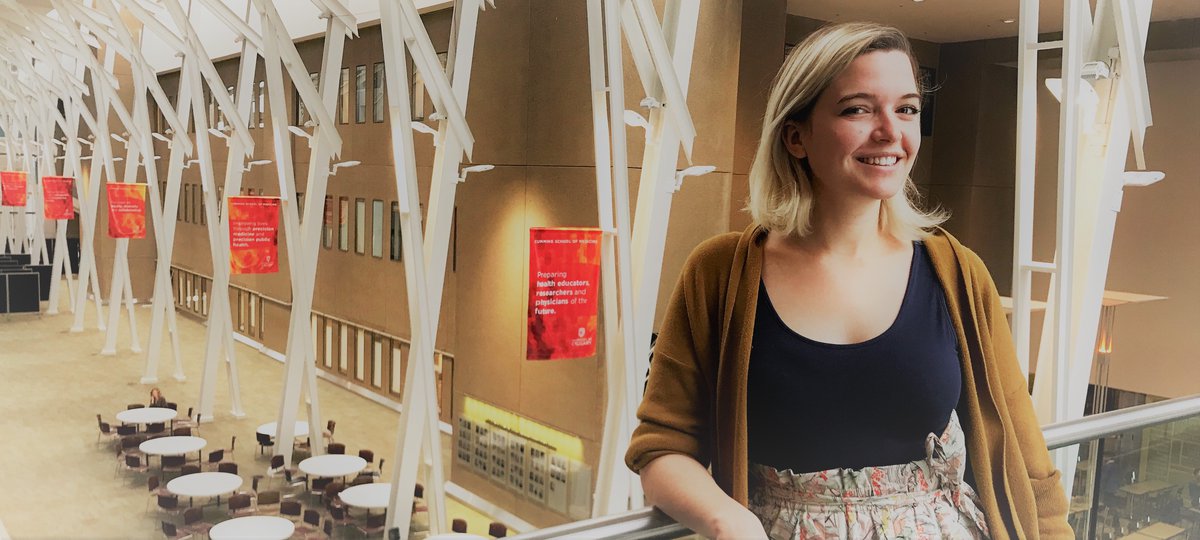Emily Cooley came to my attention as a medical student who sought to join the advocacy group Calgarians for Kids’ Health. This not-for-profit group aims to reduce the incidence of the most common chronic disease of childhood: dental decay.
When Emily attended her first meeting, she brought with her a capacity to listen intently to others and then to respond positively with out-of-the-box thinking. Our challenge was to communicate the wealth of reliable information about fluoridation. Emily responded to that challenge by proposing a welcoming, non-judgemental event in which Calgary residents could ask any questions that they might have about fluoridation. She quickly took leadership and has helped the group stay focused on the goals of welcoming and non-judgemental education and knowledge transfer whenever we stray into the minutia and risk forgetting the overall goal.

Planning a meeting for about 200 people that will include the media and possibly people who do not wish fluoridation to return to Calgary has been a difficult experience. Despite the stress of completing a typically four-year medical degree in three years, Emily has attended and led planning meetings, always bringing inspiration and a resoluteness that helps us stay true to our overall goal.
Emily has also advocated in other ways as a medical student. She co-leads the bioethics interest group that advocates for a prominent place for ethics in medical school training. To date, the group has collaborated with the medical school’s global health concentration program to provide an ethics workshop that deconstructs real experiences that medical students have and will encounter, thereby developing skills to put ethical problem solving into practice. The group is currently organizing an interdisciplinary bioethics simulation by which students will have the opportunity to explore bioethical challenges in a simulated clinical environment. Emily recognizes the gap in medical education between learning ethical principles and gaining the confidence to put those principles into action.
Creating a bioethics curriculum that emphasizes the importance of taking ethical action will hopefully encourage future physicians to include advocacy as an important part of their practice. This effort is further evidence that Emily firmly believes that physicians, medical students and other health professionals should not only be content to hold an informed opinion on a practice which the peer reviewed evidence supports. There is also a positive obligation to advocate for it. In other words, she believes in putting bioethics into practice and she works hard to achieve this goal.
Emily is also a member of Medical Students for Gender and Sexual Diversity and is part of a subcommittee developing a continuing education curriculum session for physicians and medical students, providing training for prescribing pre-exposure prophylaxis for HIV (PrEP). The group identified a knowledge gap with family physicians that exists partly because HIV treatment in Alberta is managed entirely by specialized clinics. Consequently, most family doctors do not have experience with antiretroviral therapy, so at-risk patients have difficulty accessing treatment as prevention. The teaching session Emily helped to organize occurred in December. It welcomed all Calgary doctors who were seeking clinically relevant information on PrEP, and led to more accessible HIV prevention for all Albertans.
Emily is a fine example of that rare medical student who contributes strongly to the present by advocating for those less fortunate than she is.
